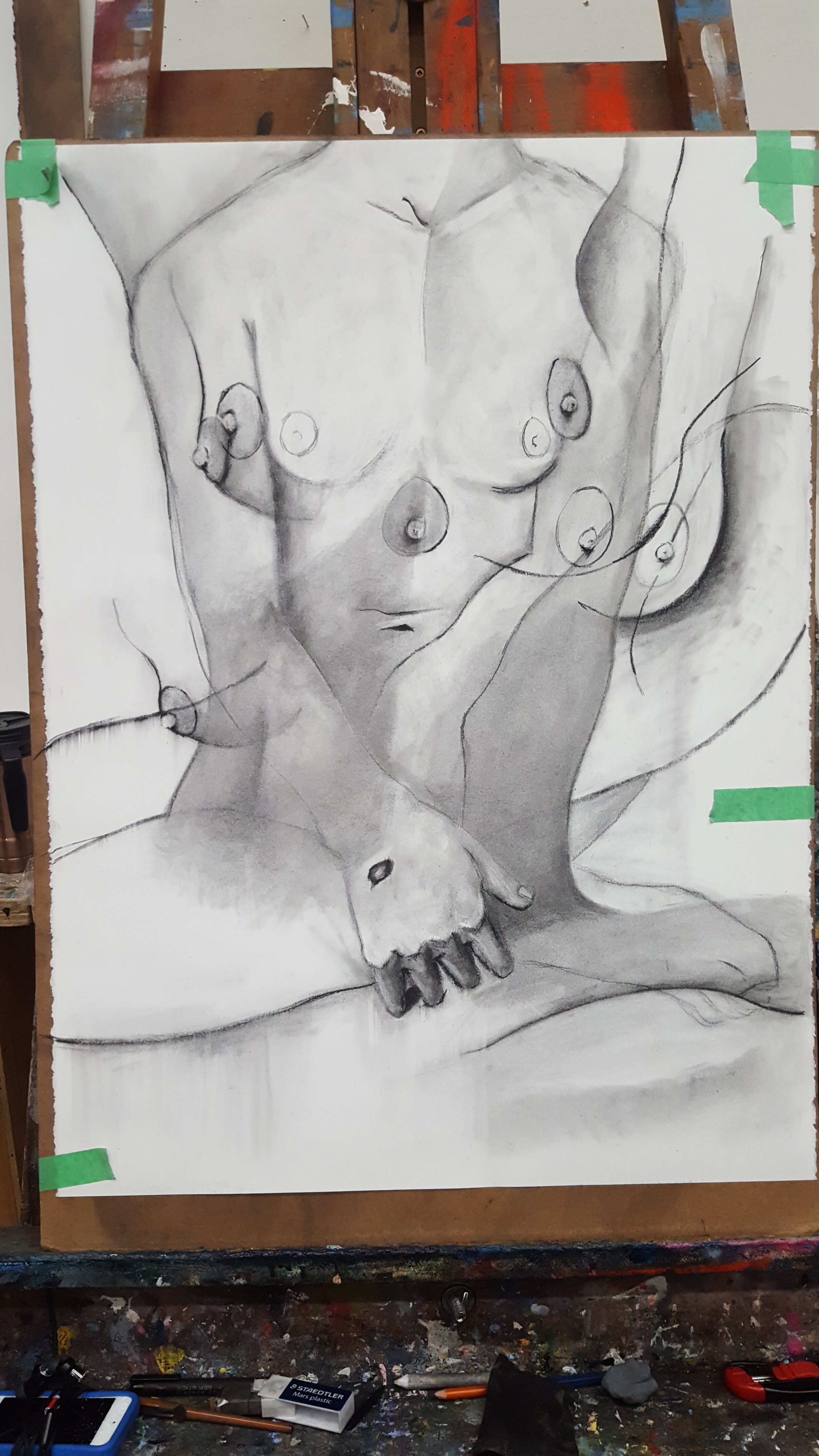EHREN LOOS

You Have Blood on Your Hands
BIOGRAPHY
Ehren Loos is a twenty-six year old human artist based in Amiskwacîwâskahikan (Edmonton). Their past work explores the transgender experience and comments on the history of gendered depiction (and the erasure of queer and transgender subjects) in art history. Their methods are informed by being subject to the cissexist gaze, as well as growing up (and coming out) in rural Northern Alberta. Their overarching goal in any of their work is to reimagine the transgender experience as being healing, by positing that transgender persons should get to choose how they are represented in media. As such, and with a few minor exceptions, Ehren depicts only transgender or otherwise marginalized people in their work.
ARTIST STATEMENT
You Have Blood on Your Hands :
The phrase “you have blood on your hands” comes from a longer statement in actor Elliot Page’s coming out letter, which was published on Twitter in December of 2020. Not only is his letter poignant due to the content, but also due to the past two years, where many people had lost their jobs, or were deemed as essential workers in the global pandemic. As many people were confined to their homes, many relationships, social events, and conversations moved online. Page’s position in their letter partly came as a response to several well-known public figures espousing transphobic and transmisogynistic vitriol on social media.
While some folks had the safety of their own home to explore and unpack their gender identities over the course of the COVID-19 pandemic, others used the opportunity to speak hate from the relative safety of any phone or computer with a wifi connection. Still others had to return to, or quarantine in unsupportive environments, where they may have faced abuse or the same transphobic vitriol that is so widespread online.
As we societally transition back to social gatherings, my intent with this project is to make those uncomfortable interactions face to face, in person. I want people to physically see and understand the damage it does to transgender people to constantly and consistently see and hear that they are not welcome, that they are not “real,” that they should disappear, or that they be hunted and exposed. Finally, I want participants to understand that the objectification of transgender bodies is more common, as well as more covert, than many realize. The demands that the cissexist gaze places on transgender bodies to conform, to be palatable, and to be “normal” are extremely harmful and traumatic. My hope is that we can eventually dispel the disgust, discomfort, and entitlement that cisgender people feel towards transgender bodies, and that we can work through this trauma together.







